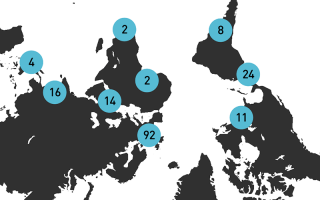Rushini Perera (2010-2011): Programme Officer (Livelihoods) for Save the Children Canada

Q: What initially sparked your interest in the DAP programme? What was your prior experience with development, if any, and what did you hope to achieve by participating in the course?
A: I was working in Sri Lanka as a humanitarian worker and I wanted to advance my career and knew a master’s education was a critical step forward. UCL was on my radar because it consistently ranked within the top five universities worldwide and has an international reputation for academic excellence. My undergraduate degree is a BA in International Development and I had traveled to Sri Lanka to get field experience in a post conflict environment. I was looking for a university that was internationally recognised along with a master’s programme that was relevant to my interests in food security and disaster risk management. The programme also includes an international field trip to a developing country which provides students exposure to the practical realities of international development. I found that because of the variety of courses offered, my classmates had different interests and academic backgrounds which made class discussions interesting and thought provoking.
Q: How or where did you first hear about the DAP programme?
A: I learnt more about the DAP programme on the UCL website as I browsed through the various masters programmes. I was drawn to the DAP programme in particular because of its core modules.
Q: What was your favourite aspect or feature of the DAP course? What was your favourite module or subject?
A: My favourite part of the programme was the field trip to Ethiopia. It gave me so much exposure and relevant experience. It helped connect the theoretical approaches that I was learning in class to the practical realities happening in the field. My favourite classes were ‘Development in Practice’ and ‘Land, Food and Agriculture.’ Development in Practice gave me great experience to learn practical skills such as proposal writing, logic model development and budgeting, all useful and job relevant skills to have in this field. The second course was fascinating to me because of my interest in food security and livelihoods. I found the professors to have amazing experiences that helped motivate students.
Q: How has your career developed since completing the course? Where have you been working since graduation, and how did you get into that role? How has the course prepared you for your current career?
A: I’m currently the Programme Officer, Livelihoods for Save the Children Canada. Following the field trip to Ethiopia, I decided to write my dissertation on large scale land acquisitions ‘land grabbing’ using Ethiopia as a case study.
After graduation I applied to Save the Children Canada which was offering an internship to Ethiopia and because I had field experience in Ethiopia and did my thesis about Ethiopia I had a strong understanding of its development context and had practical field experience. After my internship, I was promoted and transferred to Toronto and now manage several development and humanitarian programs in Ethiopia, Philippines and Jordan. The DAP professors were very supportive and provided references and recommendations. Years later, I remain in close contact with my professors and their mentorship has been a very important influence.
Q: Do you have any words of advice for current or prospective students?
A: My advice for prospective students is to ensure that decisions about which university, programme and thesis to select needs to be strategic as the end goal has to be about leveraging these to get a step ahead in your career. I selected the university because of its international recognition, the programme because its courses were aligned with my interests, and my thesis as it was a globally trending topic of discussion with gaps in the research which I could provide insight on. My other piece of advice is to build relationships with professors and peers. Having a mentor to help guide you is very important and I found that DAP professors took a stake in the success of their students past their graduation.
 Close
Close


